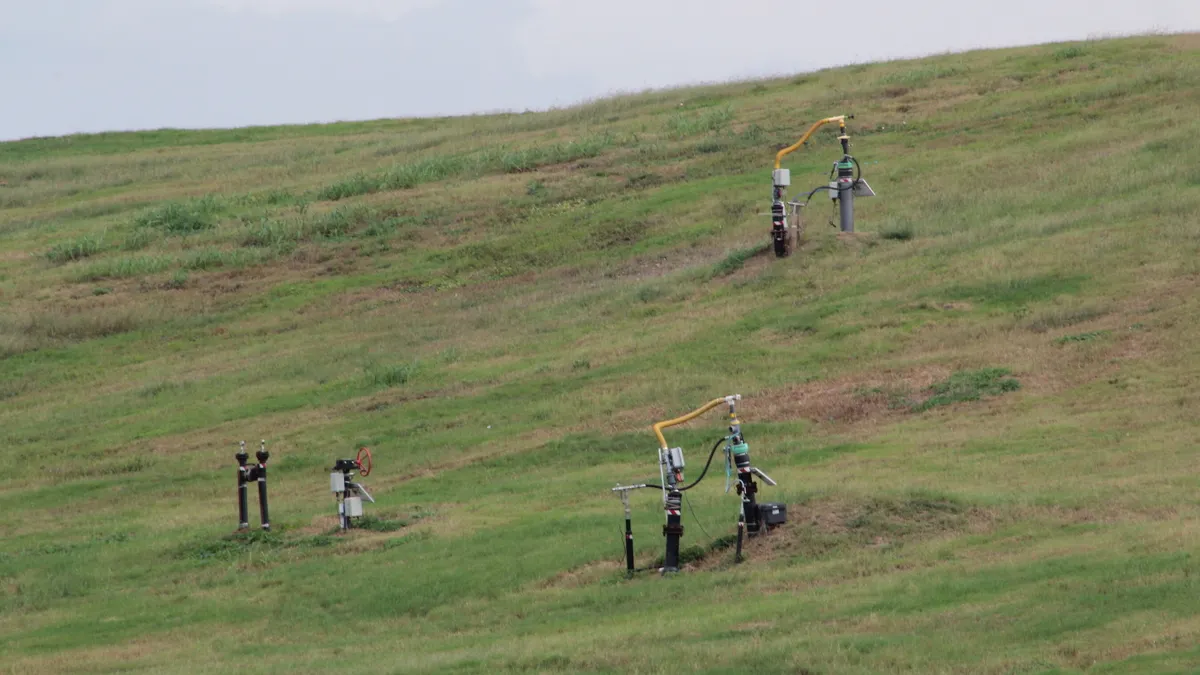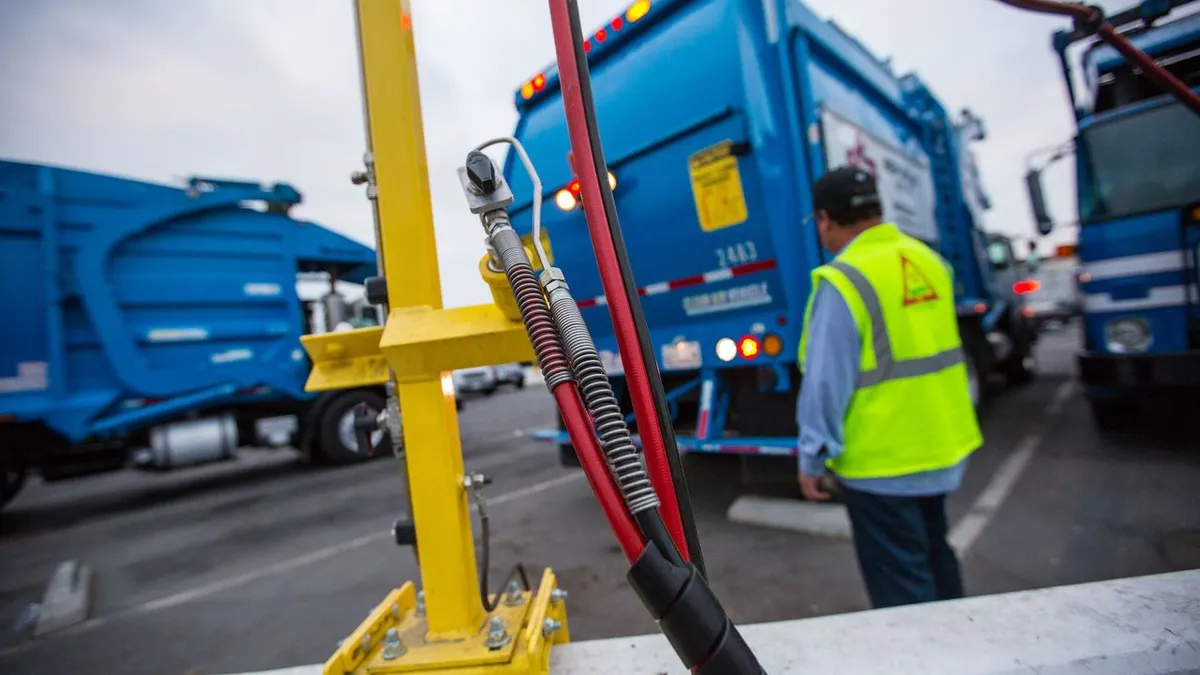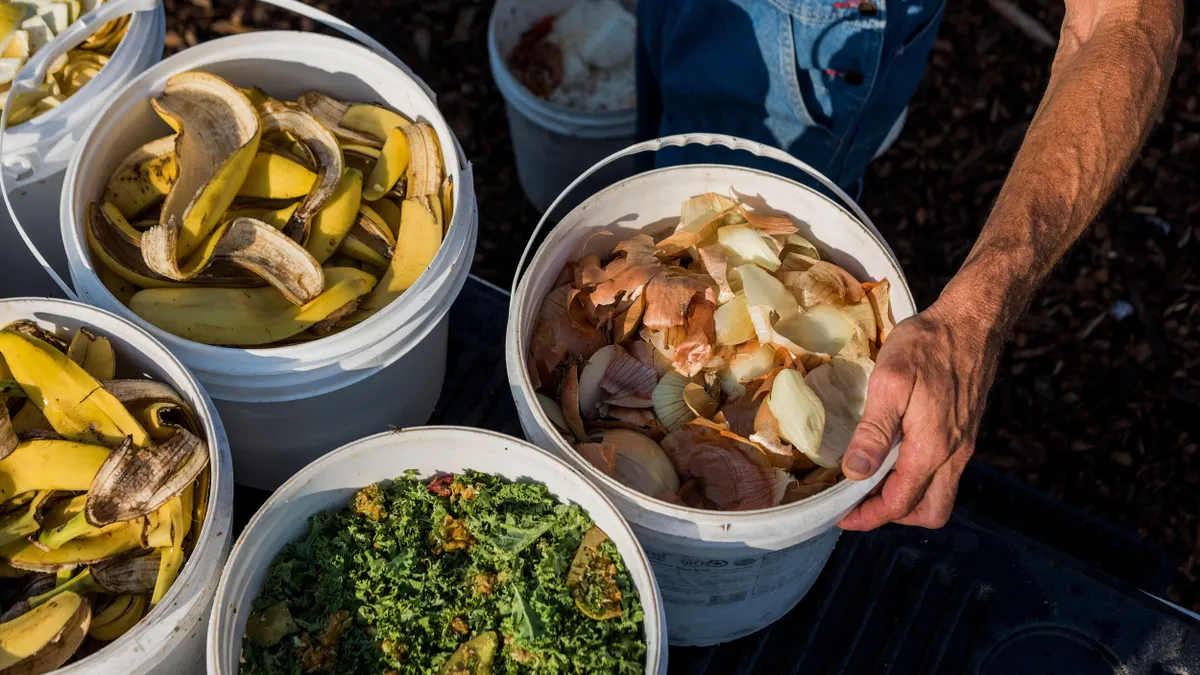Quantum Biopower, Connecticut's first and only anaerobic digester, is looking to expand its capacity and capabilities in response to growing regional demand.
The Southington facility, which currently handles an average of 110-120 tons per day, will soon be ramping up to 140 tons. A large part of this volume consists of packaged food and beverage material. And while Quantum initially anticipated this would comprise 30% of the inbound stream, the true share has been closer to 70%.
“We didn’t know how much packaged material was out there," said business development manager John Ferguson on a recent tour.
As first reported by the Record-Journal, the Southington Planning and Zoning Commission recently gave Quantum unanimous approval for a 25,000-square-foot expansion with new depackaging equipment that could be completed within the next 18 months. All material is currently manually sorted and opened before processing.
Since 2014, Connecticut has required any business that generates at least two tons of source-separated organic material per week to divert it for processing — as long as a facility is available within 20 miles.
As one of the few eligible facilities currently open in the state, Quantum has no trouble sourcing material — in addition to Connecticut, the digester also frequently receives load from Vermont, Massachusetts and New York. It's now ramping up daily capacity and looking for ways to expand from a current permit level of 40,000 tons per year — the site was specifically designed to grow through infrastructure and process updates to take in up to double that amount.
Quantum derives revenue from a variety of sources, including tip fees, biogas revenue, a 20-year power purchase agreement with its host municipality and the sale of digestate as a compost amendment. The company is often held up as a model of what the next generation of materials management infrastructure could look like in Connecticut. The state, which is largely reliant on aging incinerators, recently experienced how tenuous that system can be after the surprise multi-month shutdown of one Hartford facility. Ongoing state-led efforts to update that infrastructure, possibly with the inclusion of a new anaerobic digestion facility, have reportedly stalled over the past year.
In another sign of growing interest, a state bill was recently introduced that would create curbside collection pilots in three municipalities "not more than 20 miles from a permitted and operational anaerobic digester in the state." Quantum is currently the only facility that fits that description.
While clean residential material would be welcome, it's clear Quantum's primary focus in the near future will continue to be on commercial products. A February tour revealed a receiving bay stacked high with pallets of past-date bananas, watermelons, citrus fruit and other produce; an overflow of pallets and containers sat out in the parking lot as laborers worked through the piles to recover cardboard and other packaging materials.
The new depackaging operation is expected to go up across from the receiving bay in a currently open lot — part of parent company Supreme Forest Products' mulching operation.
This will limit the amount of time employees have to spend outside and increase the pace of Quantum's operations. Spurred by state and local diversion mandates, it has become increasingly common to see depackaging investments in the Northeast: Waste Management's Boston CORe facility opened in 2016, and farm-based digester company Vanguard Renewables is investing in multiple depackaging systems throughout the region.
All of this bodes well for the growth of organics processing capacity, and Quantum is actively exploring opportunities for new sites — but even successful operators describe this wave of anaerobic digestion growth as still being in the early stages. Vanguard recently called out the Massachusetts Department of Environmental Protection for not enforcing its organics mandate rigorously enough (leading to underutilized processing capacity), and Quantum is also frank about what entering the market entails.
“If you want to get into developing anaerobic digestion, you better have a big account with a lot of zeros in it," said Vice President Brian Paganini during a recent panel at SWANApalooza. "Because you’re definitely spending a lot of money to get to the starting line."


















